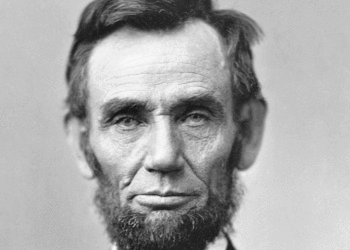The American Jewish World was clearly a labor of love because he valued Jewish journalism
By RABBI DAVID GOLINKIN
I had the pleasure of knowing Rabbi Marc Liebhaber, z”l, for more than 20 years. He was one of the last of a dying breed — a rabbi who received a thorough Jewish education in Eastern Europe before the Holocaust who combined that education with the Western values and approaches which he learned in the United States in a seamless fashion.
We have learned in the Tractate of Megillah (13b): “Mordechai was one of the members of the Sanhedrin who sat in the Hewn Chamber of the Temple, who knew 70 languages.”
Rabbi Liebhaber did not know 70 languages, but he was fluent in at least six, including Yiddish, Hebrew, English, Russian, Polish and German. I always spoke to him in Hebrew. He spoke a pure Hebrew, which he had learned in Eastern Europe, sprinkled with biblical and rabbinic expressions, without many of the slang expressions so common in Israeli Hebrew.
From time to time he would ask me if I understood Yiddish and then he would throw in a Yiddish expression or joke. I think that he told me when he was about 95 years old that he read three newspapers every morning online — Haaretz in Hebrew, the New York Times in English, and a newspaper in Russian. I believe that he also wrote his doctorate in German, after World War II, on the history of Jewish journalism.

This leads us to Rabbi Liebhaber’s second love: journalism. For many years Rabbi Liebhaber was the publisher of the American Jewish World, the newspaper of the Jewish community in Minnesota. In that capacity, he wrote a weekly column. For many years when I saw him in Jerusalem or Florida, he would tell me what he was writing or had written in his weekly column. For him, the newspaper was clearly a labor of love because he valued Jewish journalism.
For me, Rabbi Liebhaber’s most impressive trait was his girsa d’yankuta, his vast knowledge of Jewish sources, which he had learned by heart as a child and at the Tahkemoni Rabbinical Seminary in Warsaw. This was evident every time that one spoke to Rabbi Liebhaber, but especially when he spoke every year at the annual commencement exercises of the Schechter Institute, before giving out the Liebhaber Prize for Religious Tolerance. He always spoke for 10 to 15 minutes in Hebrew without notes, and brilliantly connected the weekly portion or an upcoming Jewish holiday with the most pressing issues of Israel and the Jewish world. His speeches were filled with Jewish neshama and humor. Indeed, for all of us in attendance, it was the highlight of every graduation.
At the last ceremony which he attended in June 2013, at the age of 95, Rabbi Liebhaber gave one of his usual brilliant divrei torah. At the end of the ceremony, a young man about 20 years old came over to him, told him that he was incredibly moved by his talk, and insisted on having his picture taken with Rabbi Liebhaber.
Rabbi Liebhaber told me many times that his faith in God was shaken by the Holocaust, since most of his family and that of his wife, Henia, z”l, were killed during the Shoah. I think that is the reason he decided that as a rabbi he would stress Jewish peoplehood and the State of Israel. Every time I met with him he expressed his concern for the future of American Jewry — could they survive assimilation and intermarriage — and for the State of Israel — could it survive its hostile neighbors and the stark divisions between different types of Jews.
Indeed, that is why Henia and Marc founded the Liebhaber Prize for Religious Tolerance at the Schechter Institute, after Yitzhak Rabin was assassinated in 1995: in order to help foster tolerance and pluralism among the Jews of Israel.
Rabbi Liebhaber was a ba’al tzedaka, a Jew who gave very generously to many Jewish organizations, including B’nai Torah Congregation, in Boca Raton; Masorti Olami/World Council of Conservative Synagogues; and the Schechter Institute.
Finally, Rabbi Liebhaber loved his family: his beloved Henia, whose death in 2010 caused him great anguish; his son and other relatives in Israel; and Sharon and Alan and their family in the U.S. He frequently told me stories about his children and grandchildren, and was very proud of their accomplishments.
It was an honor to have known Rabbi Liebhaber, z”l. Yehi zichro baruch — may his memory be for a blessing.
***
Rabbi David Golinkin is president of the Schechter Institute of Jewish Studies in Jerusalem.
(American Jewish World, 10.24.14)





















Comments 0